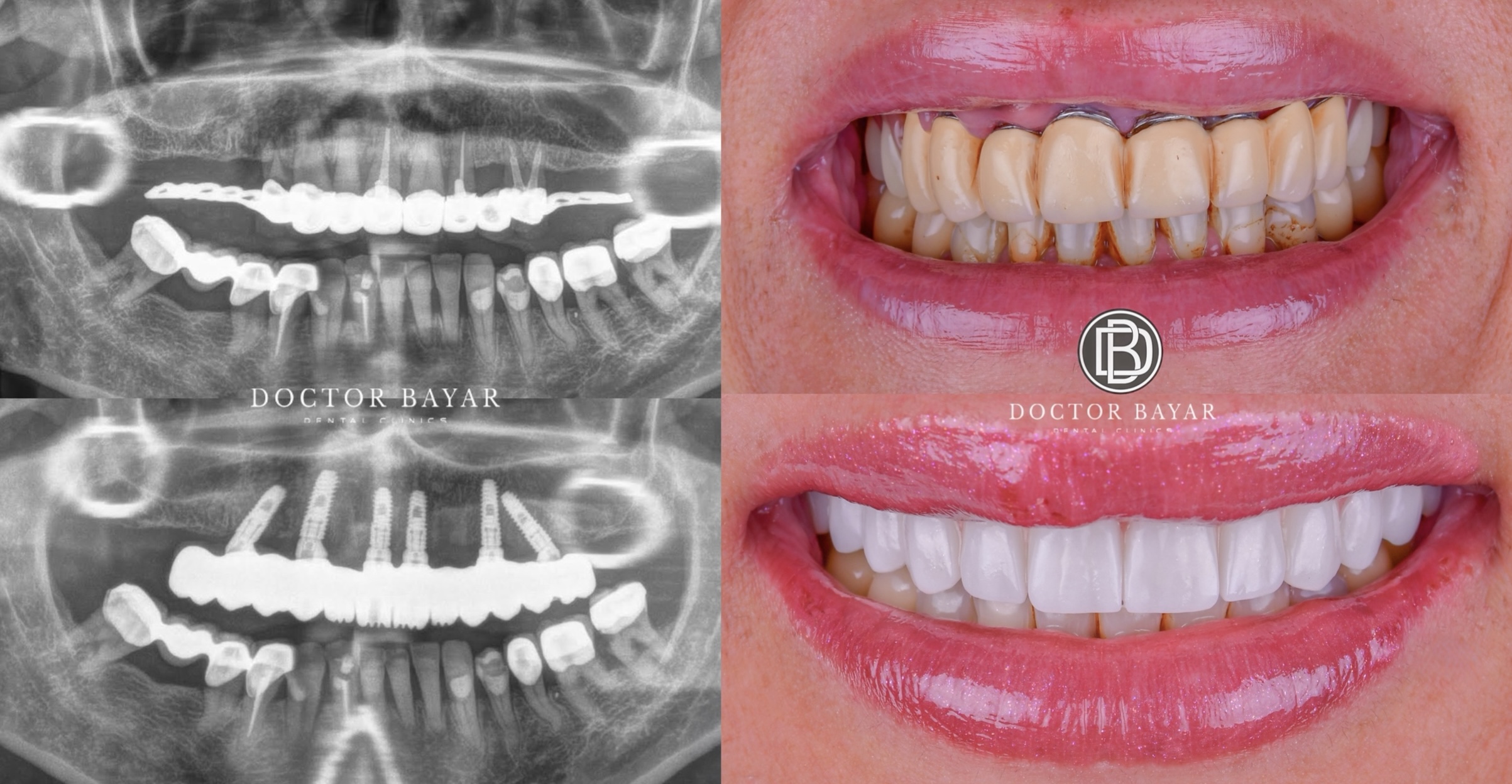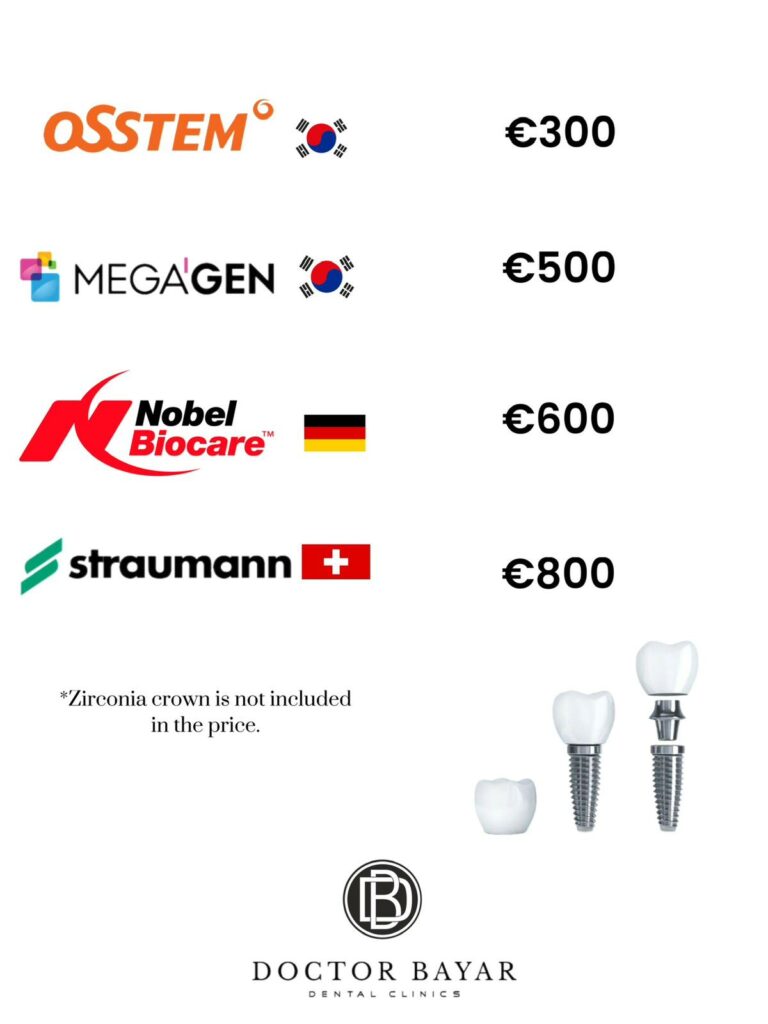A ComprehensiveGuide to Restoring Your Smile
Dental implants have revolutionized the field of restorative dentistry by providing a permanent solution for patients who have lost their teeth. Unlike traditional dentures or bridges, dental implants are long-lasting, aesthetically pleasing, and function much like natural teeth.
The detailed guide below looks into the intricacies of dental implants, including the many advantages, the processes involved, and what one can expect along the way to a renewed smile.

Understanding Dental Implants
By definition, a dental implant is a titanium post surgically positioned in the jawbone to act like a root for a missing tooth. Gradually, the implant forms with the jawbone through a process called osseointegration and becomes a solid base for a crown. The latest dentistry not only restores the aesthetic effect of a full complement of teeth but also greatly supports the health of the oral cavity, hindering the development of such a common condition as bone loss due to the lost teeth.
The advantages of the dental implant exceed the aesthetics. This, for many patients, translates into an immensely enhanced quality of life: with renewed confidence in being able to eat and speak without anxiety regarding slippage or discomfort when using traditional dentures. Moreover, dental implants do not necessitate the grinding of neighbor teeth that are integral in the case of dental bridges, thus preserving the intactness of the neighboring tooth structures.
This is most important, as it keeps the dental arch in its normal alignment and, hence, minimizes the possibility of dental complications afterward.
The Dental Implant Procedure: What to Expect
The journey to receiving dental implants typically involves several stages, each meticulously planned to ensure optimal outcomes. Initially, a comprehensive dental examination is conducted, including X-rays and a thorough assessment of the patient’s oral health. This step is vital as it helps the dental professional determine the suitability of the patient for implants and identify the precise location for placement.
Once the preliminary assessment is complete, the surgical phase begins. This involves the careful placement of the titanium implant into the jawbone under local anesthesia. Patients often report minimal discomfort during this phase, thanks to advancements in sedation techniques. Following the implant placement, a healing period of several months is necessary to allow for osseointegration. During this time, the implant becomes securely anchored in the bone, providing a sturdy foundation for the eventual placement of the crown.
After the healing period, a second minor procedure may be required to expose the implant and attach an abutment, which is a connector that holds the crown in place. Finally, the custom-made crown is fitted, completing the transformation. This crown is designed to match the color, shape, and size of the surrounding teeth, ensuring a seamless integration into the patient’s smile.
Post-Procedure Care and Maintenance
Once the dental implants are in place, proper care and maintenance are crucial to ensure their longevity. Patients are encouraged to maintain excellent oral hygiene practices, including regular brushing and flossing, to prevent infections that could compromise the implants. Additionally, routine dental check-ups are essential for monitoring the health of the implants and surrounding tissues.
It’s worth noting that while dental implants are highly durable, they are not entirely immune to complications. Factors such as smoking, poor oral hygiene, and certain medical conditions can impact the success of the implants. Therefore, maintaining an open line of communication with the dental care provider is vital. Patients should report any unusual discomfort or changes in their oral health promptly, allowing for early intervention if needed.
The Long-Term Benefits of Dental Implants
The long-term benefits of dental implants extend far beyond mere aesthetics. Research indicates that dental implants can last a lifetime with proper care, making them a cost-effective solution in the long run. In contrast, traditional dentures may require replacement every few years, leading to additional expenses over time. Moreover, the psychological benefits of having a complete smile cannot be overstated. Patients often experience a boost in self-esteem and confidence, which can positively impact various aspects of their lives, from personal relationships to professional opportunities.
In terms of oral health, dental implants play a significant role in maintaining jawbone density. When a tooth is lost, the underlying bone begins to deteriorate, leading to changes in facial structure and an increased risk of further tooth loss. By providing stimulation to the jawbone through the implant, patients can effectively prevent these complications, preserving both their oral and facial aesthetics.
Frequently Asked Questions Dental Implants
When exploring dental implants, one might encounter various brands, each offering unique features, materials, and designs. While the core concept of a dental implant remains consistent—serving as a replacement root—the nuances among different brands can significantly impact the overall experience and long-term success.
For instance, some brands focus on innovative surface treatments that enhance osseointegration. These treatments create a rougher surface on the titanium implant, facilitating better integration with the bone. Brands like Straumann and Osstem are renowned for their advanced surface technology, which can significantly influence healing times and stability. Moreover, certain manufacturers provide a wider range of implant sizes and shapes, accommodating a broader spectrum of clinical situations. This customization allows dental professionals to tailor their approach based on individual patient needs, leading to higher success rates.
Another critical factor is warranty and support. Some leading brands offer extensive warranties, ensuring that patients are covered for several years post-implantation. This assurance can provide peace of mind, particularly for those investing significant resources into their dental health. Additionally, reputable brands often invest in ongoing research and development, meaning they are more likely to incorporate the latest advancements in dental technology.
The question of whether the most expensive dental implant is the best one is a nuanced topic. Price does not necessarily correlate with quality; rather, it is often reflective of brand reputation, materials used, and associated services. While top-tier brands may command higher prices due to their proven track record, extensive research backing, and superior materials, there are also less expensive options that can deliver excellent results.
Patients should focus on the overall value rather than just the price tag. Factors such as the dentist’s expertise, the quality of the materials used, and the post-operative care provided can significantly influence the success of the implant. A less expensive implant placed by a skilled and experienced practitioner may yield better results than a high-priced implant placed by someone less experienced. Therefore, it’s essential for patients to conduct thorough research, consult with their dental professionals, and weigh the long-term benefits against immediate costs.
If you’re considering Dental Implants, be sure to consult us to discuss your options and determine if they’re the right choice for you. With the right care and attention, your new smile could be just a few appointments away! Contact us via WhatsApp: +90 530 889 2139, email: [email protected], or direct message on our Instagram page (doctor.bayar).

